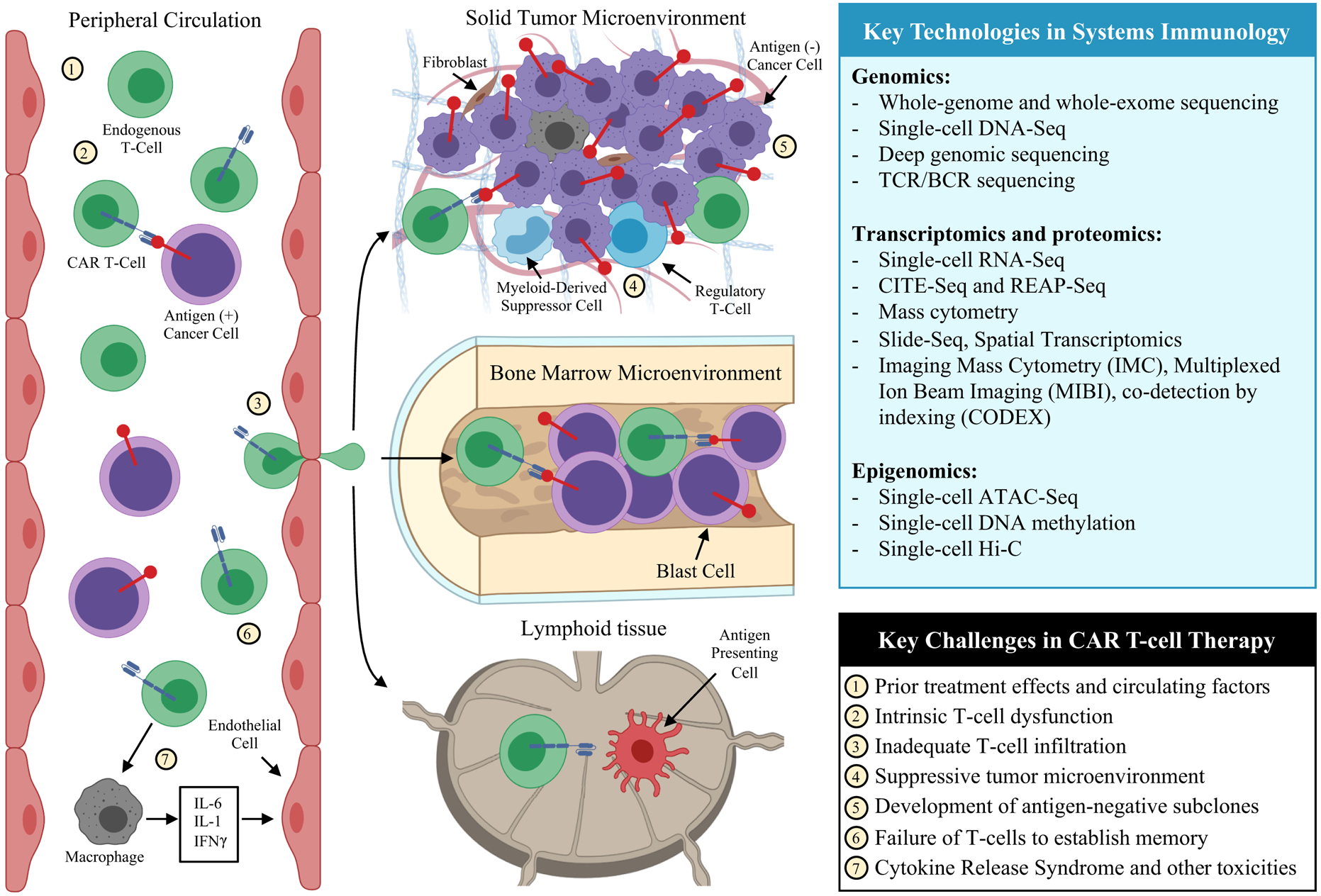Figure 1.

A systems immunology view of biomedical discovery for CAR T-cell therapy. Immunotherapy requires cellular interactions between tumor and immune populations in multiple physiological compartments including the peripheral circulation, tumor microenvironment, and lymphoid tissues. Addressing the key challenges in CAR T-cell therapy will require an understanding of these interactions among cellular phenotypes and microenvironments. Experimental and computational advances in systems immunology provide the capacity to simultaneously profile multiple cellular populations within each anatomical component, making it possible to investigate the tumor-immune interactions that underlie the major challenges in CAR T-cell therapy. Recent technological advances enable investigators to query genomic, transcriptomic, proteomic, and epigenomic features at a single-cell level. A number of methods for joint profiling of multiple molecular features have been developed, and imaging-based approaches have been developed to resolve spatial context of transcriptomic and proteomic data.
